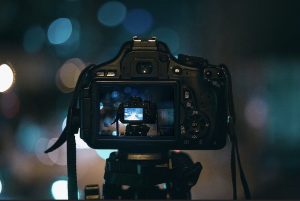 In 2014, the Texas Court of Criminal Appeals upheld a challenge to the constitutionality of Texas’s law on improper photography or visual recording. Texas Penal Code § 21.15(b)(1) was found unconstitutional on its face in Ex parte Thompson, [Sept. 17, 2014], “to the extent it proscribes the taking of photographs and the recording of visual images…” The Texas Court of Criminal Appeals found this section of the penal code violated the Free Speech Clause of the First Amendment of the United States Constitution. Ex parte Thompson was a criminal case out of Bexar County, Texas.
In 2014, the Texas Court of Criminal Appeals upheld a challenge to the constitutionality of Texas’s law on improper photography or visual recording. Texas Penal Code § 21.15(b)(1) was found unconstitutional on its face in Ex parte Thompson, [Sept. 17, 2014], “to the extent it proscribes the taking of photographs and the recording of visual images…” The Texas Court of Criminal Appeals found this section of the penal code violated the Free Speech Clause of the First Amendment of the United States Constitution. Ex parte Thompson was a criminal case out of Bexar County, Texas.
The First Amendment, made applicable to the State’s through the Fourteenth Amendment, protects individual’s right to exercise free speech. In Thompson, the Court of Criminal Appeals reasoned that a photographer’s camera is equivalent to a painter’s paintbrush and the content should thus be regulated the same in the First Amendment context.
The Court of Criminal Appeals found that the statute prohibited content based material, thus the statute was reviewed under the strict scrutiny standard. Subsection (b)(1) was a sort of catch-all provision that violated all forms of photography and visual recording—even innocent ones.
If you were charged with improper photography or visual recording under Texas Penal Code § 21.15(b)(1), you may be eligible to have your case reversed and ultimately expunged from your record. If you were already convicted or placed on deferred adjudication, you would need an experience lawyer to file a writ of habeas corpus on your behalf. Please contact the Law Office of Dayna Jones to get your case evaluated.
 San Antonio Criminal Lawyers Blog
San Antonio Criminal Lawyers Blog

